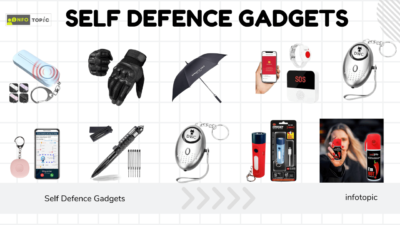Heart rate sensors are an essential tool for anyone looking to monitor and improve their health. Whether you’re an athlete tracking your workout intensity or someone concerned about heart health, heart rate sensors provide invaluable data. From fitness trackers to medical-grade devices, understanding how these sensors work and which one is best for your needs can dramatically impact your health journey.
In this article, we’ll explore different types of heart rate sensors, their features, uses, and where to find them. If you’re considering a heart rate monitoring system, read on to discover how these devices can transform your workouts and contribute to a healthier lifestyle.
Table of Contents
ToggleTable of Contents
Heart Beat Rate Machine

When it comes to heart rate sensors, the most common devices used for heart monitoring include Holter monitors, pulse sensors, and various types of heartbeat sensors. These devices have become indispensable for medical professionals and fitness enthusiasts alike. The Holter monitor test allows continuous heart rate checking over 24-48 hours, giving detailed insights into heart rhythm, which is crucial for identifying any irregularities.
A heartbeat sensor or pulse sensor offers real-time data that can be utilized during workouts or for routine health checks. The heart rate monitor sensor is another popular tool used in both medical and fitness settings. It ensures that your heart rate stays within a safe range during exercise or provides early warnings of potential issues in individuals with heart conditions.
The heart rate sensor is an effective device that tracks and records the beats per minute (BPM) of your heart. By measuring pulse, users gain real-time insights into their cardiovascular fitness and can adjust their exercise routines accordingly.
Heart Machine Name

The term “heart machine” often refers to devices like pacemakers, which are used to regulate abnormal heart rhythms. When someone has a pacemaker of the heart, it helps ensure that the heart beats in a controlled and regular rhythm. The heart machine name generally refers to the pacemaker, which includes both artificial pacemakers and cardiac pacemakers.
The pacemaker is typically recommended for individuals with arrhythmias or abnormal heart rhythms. It continuously monitors the heart and sends electrical impulses to ensure proper function. Over time, the use of pacemaker machines has revolutionized treatment for heart conditions, allowing individuals to live more active and healthier lives. Additionally, modern pacemakers come with advanced technologies, such as wireless monitoring and remote adjustments, giving doctors the ability to track and manage the patient’s health more effectively.
Pacemaker Meaning in Hindi

The term pacemaker is essential in understanding modern heart treatments. The pacemaker meaning in Hindi refers to a “हृदय गति नियंत्रक” (heart rhythm regulator), which is the device used to help individuals with irregular heartbeats. This device is essential in the modern healthcare world, where patients suffering from arrhythmia or heart block require continuous monitoring and correction of their heart rhythm.
The pacemaker of the heart is often misunderstood by many, but its function is simple yet crucial. It works by sending electrical impulses to the heart muscles, ensuring that the heart continues to beat at an appropriate rate. In pacemaker meaning in Tamil, it is referred to as “இதய செயற்கை மையம்” (artificial heart center).
Key Uses of a Pacemaker:
- Regulate abnormal heart rhythms: Helps in conditions like atrial fibrillation.
- Prevent sudden cardiac arrest: Can detect and treat abnormal heartbeats immediately.
Handheld Fetal Doppler

One of the most popular heart rate sensors in the medical field is the fetal doppler machine. A handheld fetal doppler uses ultrasound waves to detect and amplify the heartbeat of a fetus during pregnancy. The fetal doppler use is primarily in prenatal care to monitor the baby’s heart rate, ensuring that it remains within a healthy range.
A baby doppler is an essential tool for doctors to check fetal health. It’s also becoming more common for expectant mothers to use a fetal doppler at home. These devices allow parents to hear their baby’s heartbeat, providing reassurance and reducing anxiety during pregnancy.
Using a fetal doppler machine at home is a simple, safe, and effective way to monitor the baby’s heart rate, although it’s always recommended to consult a healthcare professional for proper diagnosis and monitoring.
Check Pulse Online

In today’s digital age, checking your heart rate or pulse rate is no longer restricted to the doctor’s office. With several apps and online platforms, you can now check pulse online with ease. These tools allow you to track your heart rate in real-time, providing you with a record that can be shared with healthcare providers if necessary.
How to Check Pulse:
- Use a smartwatch or fitness tracker equipped with a heart rate sensor.
- Use a heart rate sensor in smartwatch: Many wearable devices now come with built-in pulse sensors.
- Check through pulse sensor module or pulse sensor price if you’re DIYing your health monitoring system using platforms like Tinkercad or Arduino.
In this section, devices like the heart rate sensor (max30102) have become popular for people using open-source hardware like Arduino to build their own health trackers.
SPO2 Machine

A SPO2 machine is another critical tool for monitoring heart health, especially in people with respiratory or cardiovascular conditions. This device measures oxygen saturation in the blood, which directly relates to heart function. People often confuse SPO2 machines with heart rate sensors, but they are actually different. However, heart rate and pulse rate are often monitored together to give a complete picture of a person’s cardiovascular health.
The difference between heart rate and pulse rate lies in the subtlety of their measurement. While the heart rate refers to the number of heartbeats in a minute, pulse rate refers to the tactile sensation of blood flow through the arteries, often felt at the wrist or neck.
Normal Fetal Heart Rate

Expectant mothers are often concerned about their baby’s fetal heart rate. The fetal heart rate serves as a crucial indicator of the baby’s health and well-being. The normal fetal heart rate ranges from 110 to 160 beats per minute (bpm), depending on the stage of pregnancy. This rate can be checked using fetal dopplers and is an important part of prenatal care.
Doctors rely on foetal heart rate readings to assess how well the baby is doing inside the womb. A fetal heartbeat that is too fast or too slow can be an indication of potential issues such as oxygen deprivation or fetal distress.
How Many Heartbeats in 1 Minute

One of the most basic yet crucial questions about heart health is, “How many heartbeats in 1 minute is normal?” In adults, a normal heart rate generally falls between 60 and 100 beats per minute (bpm). The normal pulse rate for men and women may slightly vary, but for both genders, it’s usually around the same range.
Understanding the Heart Rate:
- An average adult heart rate typically falls within the range of 60 to 100 beats per minute (bpm).
- In children and infants, the normal pulse rate is higher.
- Understanding the normal heart rate by age helps healthcare providers assess if a person’s heart rate is too high or too low.
Conclusion: Why Heart Rate Sensors Matter

Understanding and tracking your heart rate is one of the most powerful ways to improve your overall health. Whether you’re monitoring during a workout or keeping track of your heart health as part of a chronic disease management plan, heart rate sensors provide vital information to help make better health decisions. From professional-grade devices like pacemakers to wearable heartbeat sensors, these tools are an essential part of modern health care and fitness.
If you’re looking for a heart rate sensor to incorporate into your lifestyle, consider your needs—whether it’s fitness, pregnancy, or medical management—and choose the device that best aligns with your goals. Regular use of these tools can lead to better health insights and more informed decisions about your cardiovascular health.












